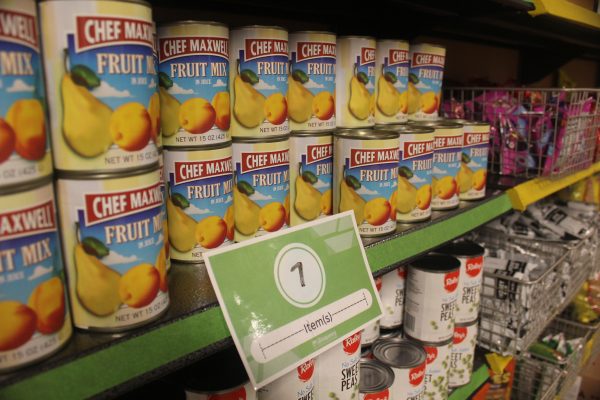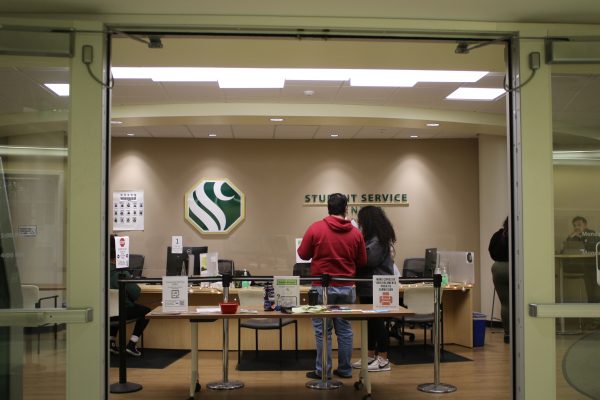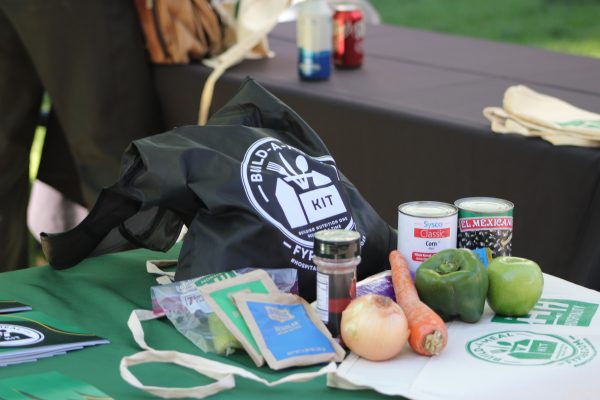CSU records show fewer alcohol-related offenses
October 5, 2011
Getting the cheapest alcohol money can buy is a popular choice among most college students. Uncontrollably drinking warm, watered-down Keystone until someone passes out with his or her shoes on, however, is becoming a rarity on California State University campuses as they have reported a decrease in students’ alcohol-related misconduct.
It’s hard to say that nobody saw this coming. The CSU Board of Trustees has worked hard for several decades to prevent college students from abusing alcohol or drinking irresponsibly.
“Six state agencies, including Alcohol, Tobacco and Firearms agencies, California Highway Patrol, and other law agencies have been very helpful with grants to motivate schools,” said CSU spokesman Erik Fallis.
The 1989 Drug-Free Schools and Campuses Act required all colleges and universities receiving federal funds to maintain alcohol and other drug prevention programs and to review their effectiveness at least every two years.
The goal of these programs is to provide a safe and secure environment for all students and to enforce laws and policies consistently regarding the use of alcohol.
Every two years, the state collects each university’s results and compiles a report summarizing the state’s effectiveness in alcohol and drug awareness. This year, the report shows strong signs of progress not only at Sacramento State, but in all CSU campuses.
Campuses reported the following facts: a decrease in students driving after consuming alcohol; a reduction in alcohol-related misconduct; a reduction in the number of underage students who consume alcohol; a reduction in the number of students who reported binge drinking (five or more drinks in one sitting); an increase in the number of students who seek medical assistance for intoxicated friends; an increase of alcohol-free events and an increase in implementing online personal drinking assessments.
Fallis believes these statements are due to the programs set up statewide to turn students away from the dangers of drinking.
“These programs are doing a good job of making sure people are aware of social norms in college,” he said.
Fallis said maybe students on college campuses don’t feel like alcohol is necessary in order to have a fun time with friends.
Fallis also said the numbers received by the state from the CSUs are rough estimates accumulated from student surveys, campus, city and state police statistics, as well as observations.
What the state knows for certain: “We are seeing positive trends of alcohol usage in the CSU system,” Fallis said.
Sac State is one of the reported universities in California that has limited the numbers of alcohol users and abusers on campus.
The Alcohol, Tobacco and Other Drugs program at Sac State has informed students about alcohol abuse, consequences of drinking, as well as safe lifestyles.
According to the Sac State 2006 CORE survey on campus, 77 percent of students never drink and drive, while 79 percent of students have one drink or less per week.
On campus, three merchants sell alcohol: the Hulu Grill located in the River Front Center, and the University Restaurant and Round Table Pizza – both located in the University Union.
Round Table was cited in 2004 for selling beer to a minor. Since then, it has eliminated pitchers of beer, made water cups clear to make the contents more visible by employees, and Round Table has increased surveillance in its dining area.
“Vendors that sell alcohol on campuses are typically very controlled, very limited and have defined processes for selling beer to students,” he said.
Beer can no longer be sold at football games or any other sporting event based on a 2006 executive order from the CSU Chancellor’s Office. Since then, drinking during tailgating has been strictly monitored throughout the CSU system.
One way Sac State reaches out to students is through advertising. The well-known “Don’t be that guy/girl” posters introduced fall 2007 have been seen all over campus in order to prevent students from being irresponsible drinkers.
Anti-alcohol abuse posters have been used as well, and since 2004 the university has sent out birthday cards to its students on their 21st birthdays with helpful safety tips to consider on their big night.
Junior kinesiology major Charlie Ryan disagreed with the birthday card idea, saying “it just doesn’t seem like students would pay attention to that kind of stuff and react positively towards it.”
While these may not seem very effective, they have actually seen a positive impact where more students have behaved protectively while reducing the number of drinks consumed on their birthday.
As for underage drinkers among freshmen, these groups have also seen a decrease in numbers on campus. Sac State’s “Alcohol, Zombies and You” is a mandatory freshman online abuse prevention course that teaches students information on drink size, social norms, refusal skills, abuse factors, alcohol poisoning and more.
Every freshman must take the assessment and pass with at least a 75 percent or re-test until he or she passes.
Freshmen are also required to learn about alcohol and its potential dangers with their parents on Orientation Day before their college journey begins.
“I feel like everyone still drinks, but I suppose the numbers don’t lie,” Ryan said.
Russell Preston can be reached at [email protected]









































































































































